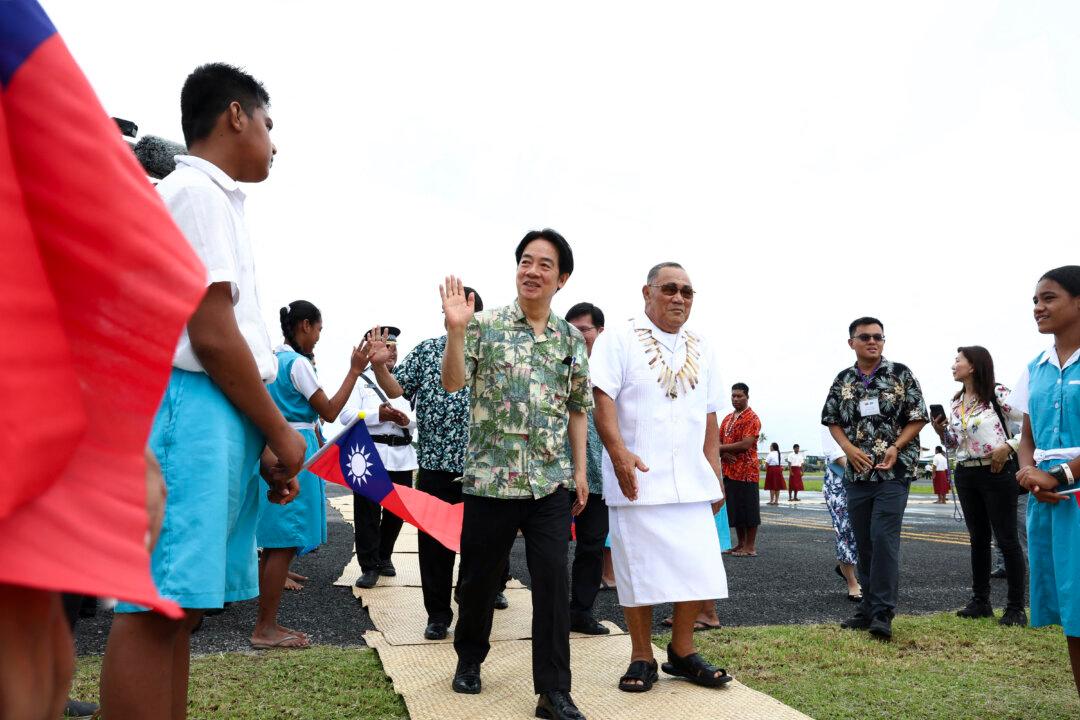Taiwan President Lai Ching-te thanked several high-ranking U.S. lawmakers on Dec. 5 after speaking with them in Guam, thereby crossing one of the “red lines” set by the Chinese communist regime for the United States.
Lai said he was pleased to talk with former House Speaker Nancy Pelosi in Hawaii and connect with the current House Speaker Rep. Mike Johnson (R-La.), House Minority Leader Rep. Hakeem Jeffries (D-N.Y.), and Sen. Roger Wicker (R-Miss.) on security and economic cooperation. Lai had video and phone calls with the former and current lawmakers, according to Taiwanese media.





